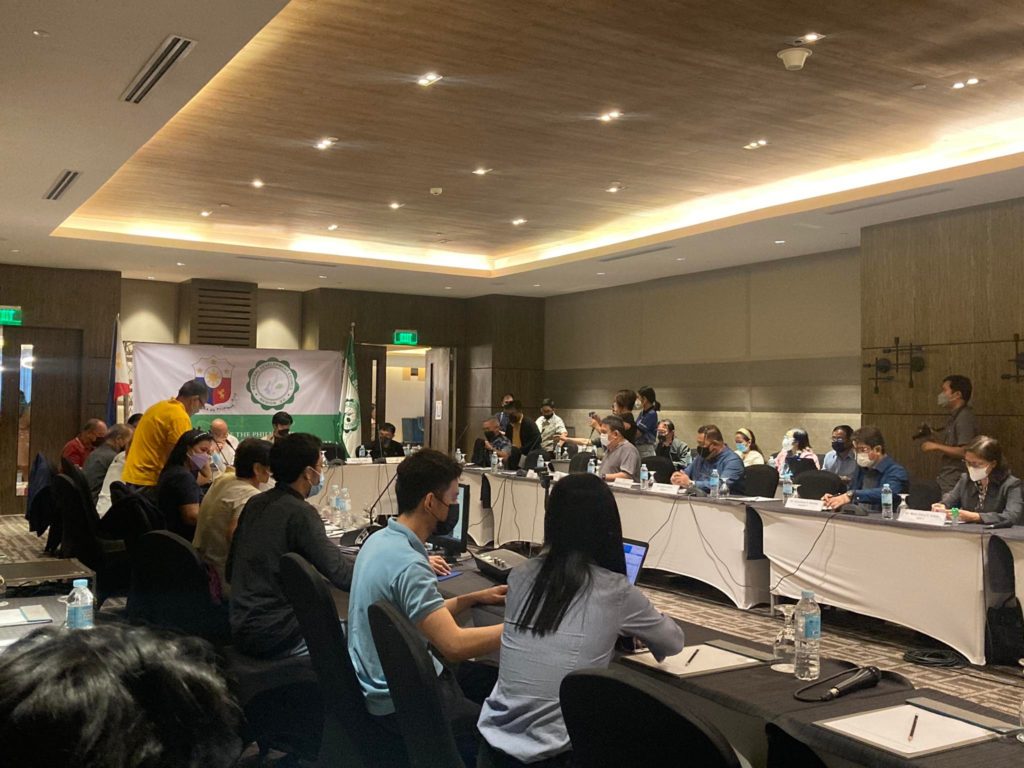
The outgoing set of officials for the RDC-7 2019-2022 held its last full council meeting on Thursday, June 23, 2022.
CEBU CITY, Philippines –The Central Visayas Regional Development Council (RDC-7) has endorsed a resolution calling for the continuation of 2G cellular phone services and asking telecommunication service providers in the region to assess further the impact of decommissioning 3G services.
The RDC-7, during its Second Quarter Full Council Meeting for 2022 on Thursday, June 23, 2022, approved for endorsement a pertinent resolution presented by its Regional Information and Communications Technology Committee (RICTC).
The resolution asked the RDC-7 Full Council to endorse to the Department of Information and Communications Technology (DICT) and the National Telecommunications Commission (NTC) the following recommendations:
- retention of 2G services;
- request telecom providers in Central Visayas to assess further the impact of decommissioning 3G, particularly the diverted traffic of calls and messages from 3G to 2G, and the diverted internet traffic from 3G to 4G or 5G; and,
- reallocate 3G equipment to areas where mobile services are not available should the assessment support the gradual decommissioning of 3G services.
To recall, one of the telco industry giant wanted to accelerate the migration of subscribers to LTE/4G by discontinuing the distribution of 3G SIM cards across all its stores and distribution chains. The telco said that with the transition from 3G to 4G, subscribers can now enjoy faster mobile internet speeds.
READ: Globe urges customers to shift to 4G, stops issuing 3G SIMs
RICTC head and DICT Visayas Cluster 2 Director Frederick Amores, on Thursday, said that the Northern Mindanao Regional Development Council (RDC-X) had called for RDCs in the country to support its Resolution No. 16 (s. 2022), endorsing recommendations on the retention of 2G and 3G cellular phone services as part of the resilient network design to the DICT and NTC.
“One of the recommendations in the RDC-X resolution is for the DICT and NTC to direct telecommunication companies to conduct in depth analysis on the impact of the decommissioning of 2G and 3G services, including the analysis of potential migration scenarios, and identify the risks of its effect to customers,” he said.
Moreover, Amores said the RICTC, during its last meeting on May 30, 2022, reviewed the RDC-X’s resolution and was able to make initial assessment on the impact of 2G and 3G cellphone services decommissioning.
He said with the decommissioning of 2G services, 2G phone users will now have to purchase a new phone capable of 3G or 4G services, while if the telecommunications company will decommission only the 3G services, they found that most 3G phones can be used 2G and 4G services.
Moreover, if the telco companies will decommission 2G and 3G services, 2G phone users will have to purchase 4G capable phones, and 3G phones are no longer available in the market, he said.
/bmjo
READ MORE:
‘Closing the gap’ in mobile Internet
